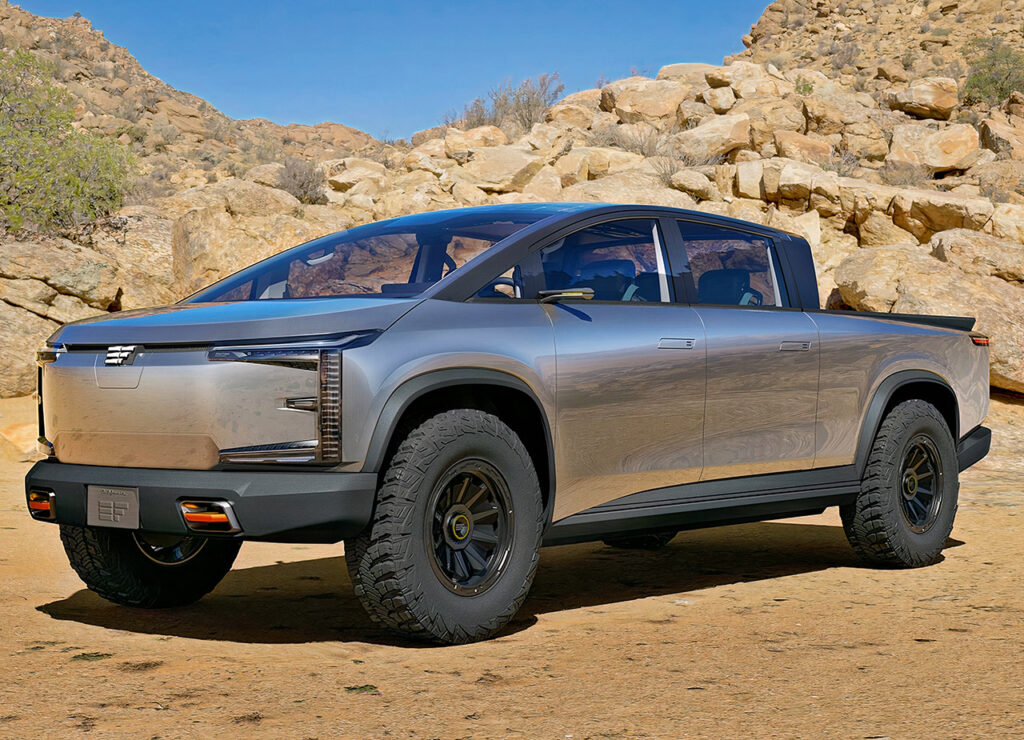As the world increasingly shifts towards sustainable solutions, electric trucks are emerging as a pivotal force in the realm of freight and transportation. These innovative vehicles not only promise to reduce carbon emissions but also offer a more efficient and cost-effective alternative to traditional diesel trucks. In this article, we will delve into the transformative potential of electric trucks, exploring how they are set to revolutionize the logistics industry and contribute to a greener planet.
Throughout this exploration, you will discover the latest advancements in electric truck technology, including battery innovations and charging infrastructure that are making these vehicles more accessible than ever. We will also discuss the economic benefits of adopting electric trucks, such as lower operating costs and government incentives that encourage businesses to make the switch. Furthermore, we will examine the environmental impact of electric trucks, highlighting their role in reducing air pollution and combating climate change.
Join us as we navigate the exciting landscape of electric trucks and their implications for the future of sustainable freight and transportation. Whether you are a logistics professional, an environmental enthusiast, or simply curious about the future of transportation, this article will provide valuable insights and encourage you to consider the benefits of electric trucks in your own operations. Read on to learn how these vehicles are not just a trend, but a vital step towards a sustainable future.
As the world shifts towards more sustainable practices, electric trucks are emerging as a pivotal solution in the freight and transportation industry. This article explores various aspects of electric trucks, highlighting their potential to revolutionize logistics and reduce environmental impact.
Environmental Impact of Electric Trucks
Electric trucks significantly reduce greenhouse gas emissions compared to their diesel counterparts. By utilizing electric power, these vehicles contribute to cleaner air and lower carbon footprints. The transition to electric trucks is crucial in combating climate change, as the transportation sector is one of the largest contributors to global emissions.
Moreover, electric trucks operate more quietly than traditional trucks, reducing noise pollution in urban areas. This aspect is particularly beneficial for communities near freight corridors, where heavy truck traffic can disrupt daily life. The adoption of electric trucks can lead to healthier living conditions and improved quality of life for residents.
Cost Efficiency and Economic Benefits
While the initial investment in electric trucks may be higher, the long-term savings are substantial. Electric vehicles (EVs) have lower operating costs due to reduced fuel expenses and less frequent maintenance needs. Fleet operators can save significantly on fuel costs, especially as electricity prices remain stable compared to fluctuating diesel prices.
Additionally, government incentives and subsidies for electric vehicle purchases can further offset costs. Many regions offer tax credits, rebates, and grants to encourage the adoption of electric trucks, making them a financially viable option for businesses looking to modernize their fleets.
Charging Infrastructure Development
The expansion of charging infrastructure is critical for the widespread adoption of electric trucks. As more companies invest in electric fleets, the demand for accessible and efficient charging stations increases. This development includes fast-charging stations along major freight routes, enabling long-haul electric trucks to operate effectively.
Innovative solutions, such as mobile charging units and battery swapping stations, are also being explored to enhance convenience for fleet operators. The growth of charging infrastructure will play a significant role in alleviating range anxiety and ensuring that electric trucks can meet the demands of modern logistics.
Technological Advancements in Electric Truck Design
Recent advancements in battery technology have significantly improved the performance and range of electric trucks. Innovations such as solid-state batteries and enhanced energy density are paving the way for longer-lasting and more efficient electric vehicles. These developments are crucial for making electric trucks a practical choice for long-haul transportation.
Furthermore, the integration of smart technologies, such as telematics and autonomous driving features, enhances the operational efficiency of electric trucks. These technologies allow for real-time monitoring of vehicle performance, optimizing routes, and reducing energy consumption, ultimately leading to more sustainable freight operations.
Challenges Facing Electric Truck Adoption
Despite the numerous benefits, several challenges hinder the widespread adoption of electric trucks. One major concern is the limited range of electric vehicles compared to traditional trucks, which can impact their suitability for long-haul routes. Addressing this issue requires ongoing advancements in battery technology and the development of a robust charging network.
Additionally, the upfront costs associated with electric trucks can be a barrier for many businesses. While long-term savings are evident, the initial financial commitment may deter some fleet operators from making the switch. Education and awareness about the economic benefits of electric trucks are essential to overcoming this challenge.
Regulatory Support and Policy Framework
Government policies play a crucial role in promoting the adoption of electric trucks. Many countries are implementing stricter emissions regulations and offering incentives for businesses to transition to electric fleets. These policies not only encourage the use of electric trucks but also support the development of necessary infrastructure.
Furthermore, international agreements aimed at reducing carbon emissions are pushing the transportation sector towards electrification. As regulations become more stringent, companies that invest in electric trucks will be better positioned to comply with future standards and maintain a competitive edge in the market.
Case Studies of Successful Electric Truck Implementation
Several companies have successfully integrated electric trucks into their operations, showcasing the viability of this technology. For instance, major logistics firms have reported significant reductions in operational costs and emissions after transitioning to electric fleets. These case studies serve as valuable examples for other businesses considering the switch.
Additionally, pilot programs in urban areas have demonstrated the effectiveness of electric trucks in last-mile delivery scenarios. These initiatives highlight the potential for electric trucks to enhance sustainability in urban logistics while meeting the growing demand for eco-friendly transportation solutions.
The Future of Electric Trucks in Freight and Transportation
The future of electric trucks looks promising as technology continues to advance and societal demand for sustainable practices grows. With ongoing investments in research and development, electric trucks are expected to become more efficient, affordable, and widely adopted across the freight and transportation sectors.
As businesses increasingly recognize the importance of sustainability, electric trucks will play a vital role in shaping the future of logistics. The transition to electric fleets not only benefits the environment but also positions companies as leaders in the movement towards a greener economy.
| Aspect | Description |
|---|---|
| Introduction | Electric trucks are emerging as a key solution for sustainable freight and transportation, reducing carbon emissions and reliance on fossil fuels. |
| Environmental Impact | Electric trucks produce zero tailpipe emissions, significantly lowering air pollution and contributing to climate change mitigation. |
| Cost Efficiency | While initial costs may be higher, electric trucks offer lower operating costs due to reduced fuel expenses and maintenance needs. |
| Technological Advancements | Advancements in battery technology and charging infrastructure are making electric trucks more viable for long-haul transportation. |
| Government Incentives | Many governments are providing incentives for electric truck adoption, including tax breaks and grants, to promote sustainable practices. |
| Challenges | Challenges include limited range, charging infrastructure, and the need for significant investment in technology and training. |
| Future Outlook | The future of electric trucks looks promising, with increasing adoption expected as technology improves and sustainability becomes a priority. |



